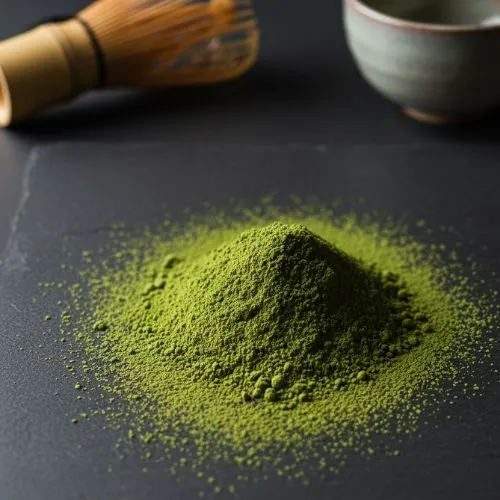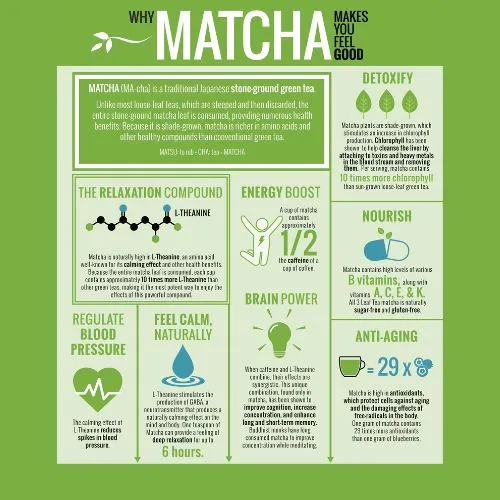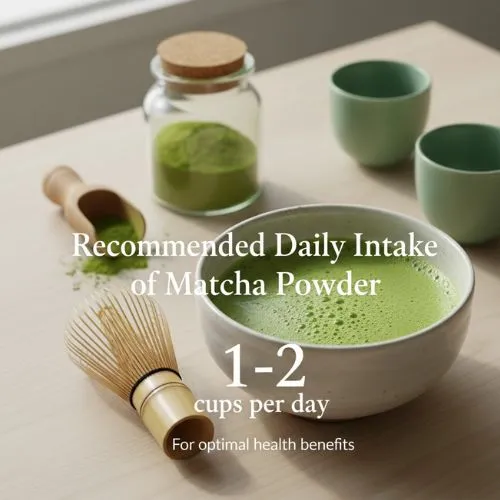Is matcha ok to drink daily?
Matcha, the vibrant green powdered tea, has surged in popularity as a health-boosting beverage. But with its potent concentration of nutrients and caffeine, many wonder if it's safe to consume matcha powder on a daily basis. This comprehensive guide will explore the health effects, recommended intake, and best practices for incorporating matcha into your daily routine.

Health Effects of Drinking Matcha Powder Daily
Antioxidant Powerhouse
Matcha is renowned for its exceptional antioxidant content, particularly catechins like epigallocatechin gallate (EGCG). These powerful compounds help neutralize harmful free radicals in the body, potentially reducing the risk of chronic diseases and supporting overall health. Daily consumption of matcha can provide a consistent influx of these beneficial antioxidants, supporting your body's natural defense mechanisms against oxidative stress.
Cognitive Function and Mental Clarity
The unique combination of caffeine and L-theanine in matcha creates a balanced effect on cognitive function. While caffeine provides an energy boost, L-theanine promotes relaxation without drowsiness. This synergy can result in improved focus, alertness, and mental clarity when consumed regularly. Many matcha enthusiasts report enhanced productivity and concentration throughout the day when incorporating matcha into their daily routine.
Metabolism and Weight Management
Studies suggest that the catechins in matcha may have a positive impact on metabolism and fat oxidation. Regular consumption of matcha powder has been associated with increased thermogenesis (heat production) and fat burning, which could potentially aid in weight management efforts. However, it's important to note that matcha alone is not a magic solution for weight loss and should be part of a balanced diet and healthy lifestyle.

Recommended Daily Intake of Matcha Powder
Optimal Dosage for Health Benefits
While there's no universally agreed-upon "perfect" dose of matcha, most experts suggest consuming 1-2 teaspoons (2-4 grams) of high-quality matcha powder per day to reap its health benefits. This amount provides a substantial dose of antioxidants and other beneficial compounds without excessive caffeine intake. It's important to start with a lower dose and gradually increase to assess your individual tolerance and response to matcha.
Caffeine Considerations
Matcha contains more caffeine than regular green tea but less than coffee. A typical serving of matcha (1 teaspoon) contains about 25-35mg of caffeine. While this is generally well-tolerated by most people, those sensitive to caffeine should be mindful of their intake. It's advisable to consume matcha earlier in the day to avoid potential sleep disturbances, especially if you're new to incorporating it into your daily routine.
Quality Matters
When considering daily matcha consumption, the quality of the powder is paramount. High-grade, ceremonial matcha from reputable matcha powder suppliers ensures you're getting the maximum nutritional benefits without potential contaminants. Look for vibrant green, finely ground powder with a smooth taste. Inferior quality matcha may contain fewer beneficial compounds and potentially harmful additives.

Tips for Safely Enjoying Matcha Every Day
Mindful Preparation Techniques
To maximize the benefits and enjoyment of your daily matcha, proper preparation is key. Use water that's hot but not boiling (around 175°F or 80°C) to avoid bitterness. Whisk the matcha powder vigorously in a zigzag motion until frothy for the best texture and flavor. Experiment with different preparation methods, such as traditional whisking with a bamboo whisk or modern electric frothers, to find your preferred technique.
Balanced Consumption Throughout the Day
While it's generally safe to enjoy matcha daily, spreading your intake throughout the day can help maintain steady energy levels and avoid potential caffeine-related side effects. Consider having a cup in the morning as an alternative to coffee and another in the early afternoon for a gentle pick-me-up. Be mindful of your overall caffeine intake from all sources to ensure you're not exceeding recommended limits.
Pairing with a Healthy Lifestyle
To truly harness the benefits of daily matcha consumption, it's essential to view it as part of a holistic approach to health. Combine your matcha ritual with a balanced diet rich in whole foods, regular exercise, and adequate hydration. This synergistic approach can amplify the positive effects of matcha on your overall well-being and help you maintain a healthy lifestyle long-term.

Conclusion
Incorporating matcha into your daily routine can offer numerous health benefits, from boosting antioxidant intake to enhancing mental clarity. When consumed mindfully and in moderation, matcha is generally safe and beneficial for most people. However, it's crucial to choose high-quality matcha powder from reputable suppliers and be aware of your individual tolerance to caffeine. By following the recommended intake guidelines and preparation tips, you can safely enjoy the vibrant green goodness of matcha every day.
Ready to experience the benefits of premium matcha powder? At Yangge Biotech, we specialize in providing top-quality, organic matcha powder for both individual consumers and businesses. Our matcha is carefully sourced and processed to ensure maximum nutritional value and delightful flavor. Whether you're a matcha enthusiast or a manufacturer looking for bulk organic matcha powder, we have the perfect solution for you. Contact us at info@yanggebiotech.com to learn more about our products and how we can meet your matcha needs.
FAQ
Q: Can we get some samples to test before purchasing?
A: Of course, we can provide free samples of 20 to 100 grams, but the shipping cost is at the customer's expense. The shipping cost can be deducted from the next order, or the samples can be sent through your courier account.
Q: Do your products have relevant certifications?
A: Yes, our products are certified for HALAL, ISO, HACCP, Kosher, and other certifications.
Q: What is the minimum order quantity (MOQ)?
A: Small batches of samples can be customized according to your requirements.
Q: Do you offer OEM and ODM services? Can the formula be customized based on our own?
A: Of course, we provide ODM and OEM services to many customers. Our product range includes softgels, capsules, tablets, sachets, granules, and private label services. Simply contact us and let us know your requirements. Our experienced R&D team can also develop new products with specific formulas.
Please contact us to design your own branded products.
Q: How do you handle quality complaints?
A: First, we have a comprehensive quality control SOP. We provide authoritative third-party inspection reports for almost all products before shipment to minimize the possibility of quality issues. Second, we have a comprehensive return and exchange procedure. If there is a genuine quality dispute, we will strictly follow the SOP.
Q: How do you ship? How long does delivery take?
A: For small orders, we typically use DHL, UPS, EMS, FedEx, or TNT. Delivery typically takes 3-7 days. We also offer air and sea freight services. We have a strong freight forwarding team and can provide you with a one-stop service, including DDP and DDU.
Q: What are your payment terms?
A: 100% prepayment, payable by T/T, Western Union, MoneyGram, or PayPal.
Q: What is the shelf life of your products?
A: 2 years with proper storage.
Q: Is the packaging environmentally friendly?
A: We attach great importance to environmental protection and are constantly improving our product packaging. Some products are packaged in recyclable paper. Packaging materials are carefully selected to ensure product safety during transportation and storage, and to minimize environmental impact. We are committed to achieving a balance between environmental friendliness and practicality in our product packaging, and to contributing to sustainable development.
References
1. Weiss, D. J., & Anderton, C. R. (2003). Determination of catechins in matcha green tea by micellar electrokinetic chromatography. Journal of Chromatography A, 1011(1-2), 173-180.
2. Xu, P., Ying, L., Hong, G., & Wang, Y. (2016). The effects of the aqueous extract and residue of Matcha on the antioxidant status and lipid and glucose levels in mice fed a high-fat diet. Food & Function, 7(1), 294-300.
3. Dietz, C., Dekker, M., & Piqueras-Fiszman, B. (2017). An intervention study on the effect of matcha tea, in drink and snack bar formats, on mood and cognitive performance. Food Research International, 99, 72-83.
4. Fujioka, K., Iwamoto, T., Shima, H., Tomaru, K., Saito, H., Ohtsuka, M., ... & Manome, Y. (2016). The powdered green tea matcha enhances lipolysis during exercise in females. International Journal of Sport Nutrition and Exercise Metabolism, 26(6), 531-536.
5. Kochman, J., Jakubczyk, K., Antoniewicz, J., Mruk, H., & Janda, K. (2021). Health Benefits and Chemical Composition of Matcha Green Tea: A Review. Molecules, 26(1), 85.

Based on your location and order quantity, you will have the opportunity to receive a limited time free shipping promotion!

Who we are


